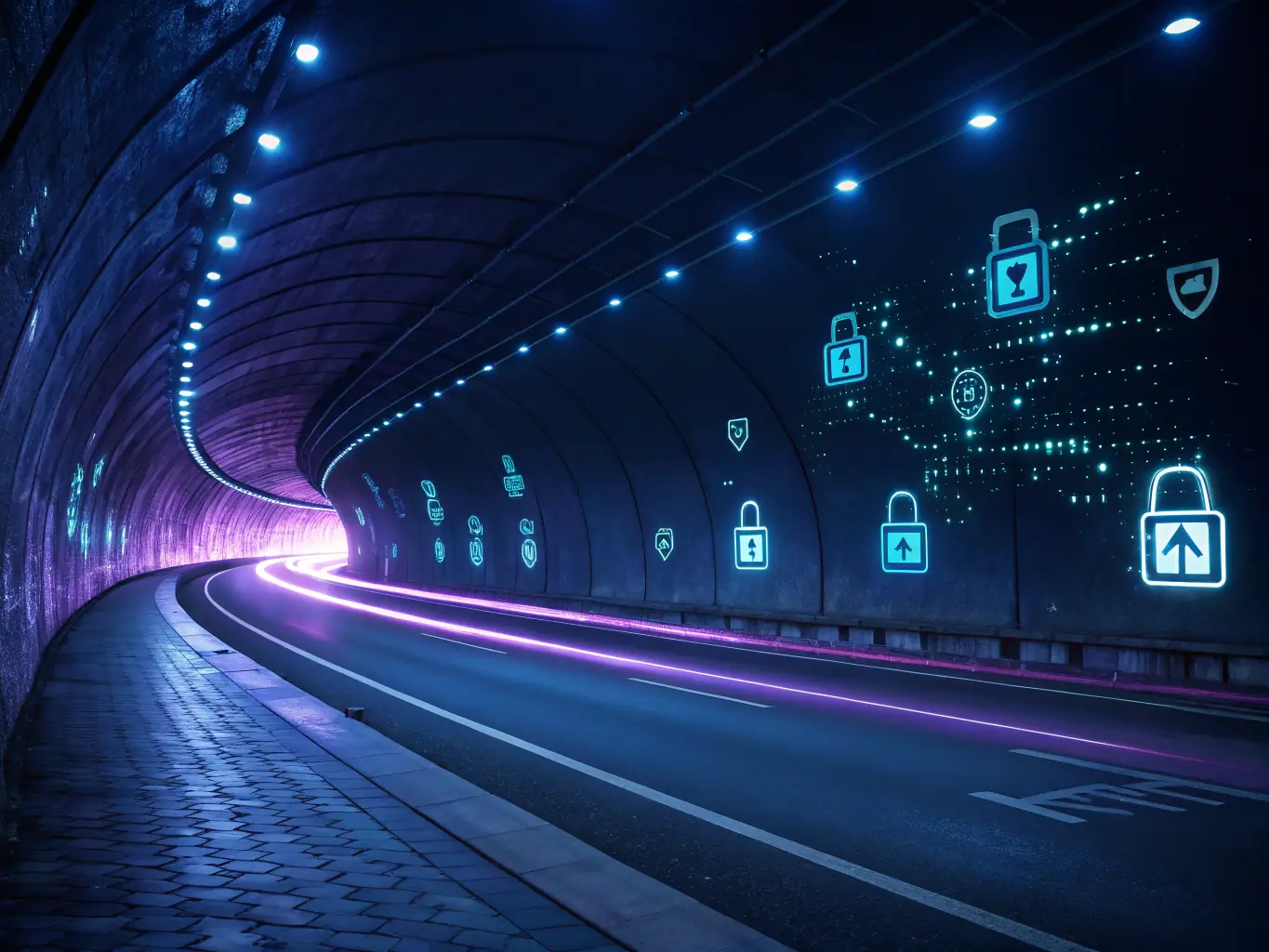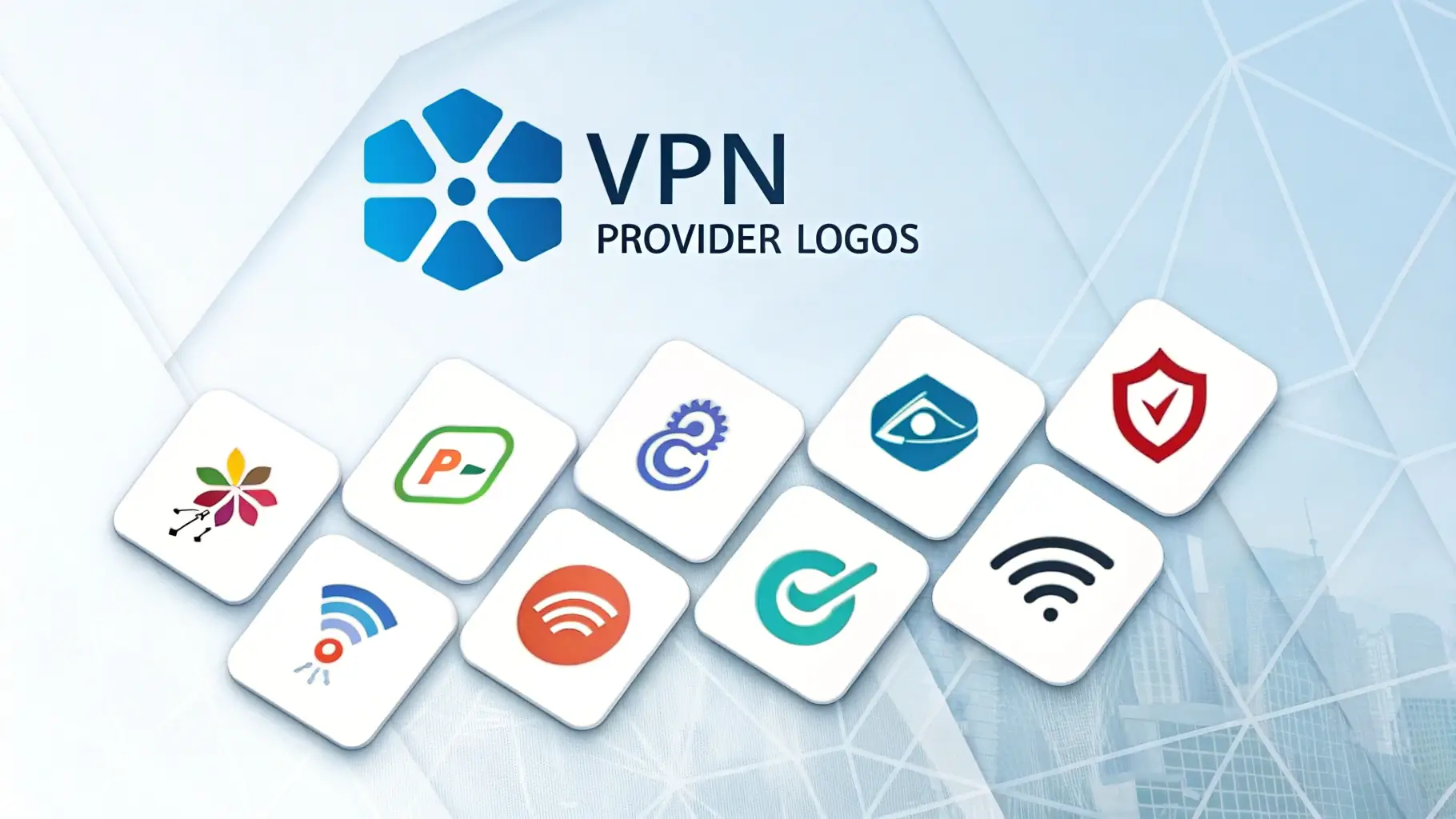Picture this: You’re traveling abroad and can’t access your favorite Netflix shows, or your internet service provider is throttling your connection during peak hours, causing constant buffering. These frustrating scenarios have led millions of streamers to ask: should you use a vpn when streaming?
The streaming landscape has become increasingly complex, with geo-restrictions, bandwidth throttling, and privacy concerns affecting your viewing experience. ISPs and third parties can track and sell your browsing habits, but using a VPN can help protect this information.
A virtual private network can address these issues, but it also comes with trade-offs that every streamer should understand.
In this comprehensive guide, we’ll explore the benefits and drawbacks of using a vpn for streaming, help you choose the right vpn service, and ensure you make an informed decision about protecting your streaming activities.
Introduction to VPNs
A Virtual Private Network (VPN) is an essential tool for anyone looking to protect their online activity and enhance their streaming experience. At its core, a VPN encrypts your internet traffic, making it nearly impossible for hackers, internet service providers, or third parties to monitor your browsing habits or intercept your data. By routing your connection through a secure VPN server, your real IP address is hidden, and you appear to be browsing from a different location—unlocking access to geo restricted content on various streaming platforms.
For VPN users, this means you can stream your favorite shows and movies from anywhere in the world, even if they’re not available in your current region. A good VPN offers a wide selection of server locations, allowing you to choose the best country for accessing specific streaming libraries. Advanced security features like DNS leak protection and a kill switch ensure that your online activity remains private, even if your VPN connection drops unexpectedly.
When selecting a VPN for streaming, it’s important to consider factors such as internet speed and connection stability. The best VPNs deliver fast speeds and a stable connection, so you can enjoy high-quality streaming without buffering or interruptions. Look for VPN services that prioritize both security and performance, offering features that safeguard your online activity while providing seamless access to streaming content across multiple platforms.
Whether you’re looking to stream on your smart TV, mobile device, or laptop, a reliable VPN can help you bypass regional restrictions, maintain your privacy, and enjoy a smooth streaming experience on all your favorite services.
Quick Answer: Yes, Here’s Why
Most streamers benefit from using a VPN, especially when facing these common challenges:
• VPNs unlock geo-restricted content from popular streaming services like Netflix, Disney+, and BBC iPlayer by masking your real IP address
• Prevents ISP bandwidth throttling that intentionally slows down streaming speeds during peak usage hours
• Keeps your connection secure and protects your privacy and data on public Wi-Fi networks at airports, hotels, and coffee shops
• Bypasses network restrictions at schools, workplaces, and hotels that block access to streaming platforms
• Keeps your streaming habits private from internet service providers and third parties who track your online activity

The key is choosing a reliable vpn service that balances security, speed, and streaming capabilities. While free VPNs often struggle with streaming quality, premium services can enhance your viewing experience significantly.
Top Benefits of Using a VPN for Streaming
Access Geo-Restricted Content
Streaming services maintain different content libraries across countries due to licensing agreements. Netflix alone operates in 190+ countries, each with unique shows and movies unavailable elsewhere.
Here’s how geo-blocking affects popular streaming platforms:
• Netflix: US library contains ~15,000 titles vs. ~4,000 in many other countries • BBC iPlayer: Completely blocks access outside the UK, requiring a UK IP address • Hulu and Disney+: Restrict premium content based on your IP address location • Amazon Prime Video: Offers different movie selections depending on your geographic region
A VPN changes your IP address to appear in different countries, effectively bypassing these restrictions. This allows users access to a wider range of streaming options across various streaming platforms by letting them view content libraries from different regions. For example, connecting to a US vpn server allows you to watch US-only Netflix shows from anywhere in the world.
Many streaming services actively try to block vpn traffic, but top-tier providers like ExpressVPN and NordVPN maintain dedicated streaming servers that consistently work around these blocks.
Bypass Network Restrictions
Educational institutions, workplaces, and even some countries impose restrictions on streaming content to manage bandwidth or enforce policies.
Common network restrictions include:
• Schools often block Netflix, YouTube, and other streaming sites during class hours • Corporate networks restrict streaming to preserve bandwidth for business operations • Some countries censor or completely block Western streaming services • Hotel networks may limit high-bandwidth activities like 4K streaming
VPN encrypts your internet traffic, hiding streaming activity from network administrators who monitor data usage. This encryption works effectively on university Wi-Fi, hotel networks, and office connections where streaming might otherwise be blocked.
The vpn connection creates a secure tunnel that makes your streaming traffic appear as regular encrypted data, allowing you to access content on restricted networks. Maintaining a secure and fast internet connection is essential for uninterrupted streaming, and a VPN helps achieve this even on restricted networks.
Prevent ISP Bandwidth Throttling
Internet service providers have been caught deliberately slowing down streaming during peak hours (typically 6-11 PM) to manage network congestion.
Major ISPs guilty of throttling include:
• Comcast: Repeatedly throttled Netflix traffic before net neutrality rules • Verizon: Admitted to throttling video streams on mobile networks • AT&T: Faced lawsuits for slowing down unlimited data customers • Charter Spectrum: Users report consistent slowdowns during prime time
VPN encryption prevents your internet service provider from identifying streaming traffic, maintaining consistent speeds for 4K streaming that requires 25+ Mbps. Maintaining high internet speed is crucial for streaming, and a good VPN can help you avoid slower speeds caused by ISP throttling. This protection prevents buffering and quality drops during high-traffic periods when ISPs typically implement throttling.
Studies show that users can experience 40% faster Netflix speeds when using a VPN during peak hours, particularly on networks known for throttling practices.
Secure Public Wi-Fi Streaming
Airport, café, and hotel Wi-Fi networks often lack proper security measures, making your streaming data vulnerable to interception by cybercriminals.
Public Wi-Fi risks include:
• Unencrypted connections that allow hackers to intercept login credentials • Man-in-the-middle attacks where criminals position themselves between you and the streaming service • Malicious hotspots designed to steal personal information from unsuspecting users • Data packet sniffing that reveals your browsing history and streaming preferences
A vpn for streaming creates an encrypted tunnel protecting your connection, allowing you to safely stream on Starbucks, McDonald’s, and airport Wi-Fi without risk of identity theft or data breaches while traveling. Using a VPN on your mobile device ensures your streaming data remains secure even when you’re on the move.
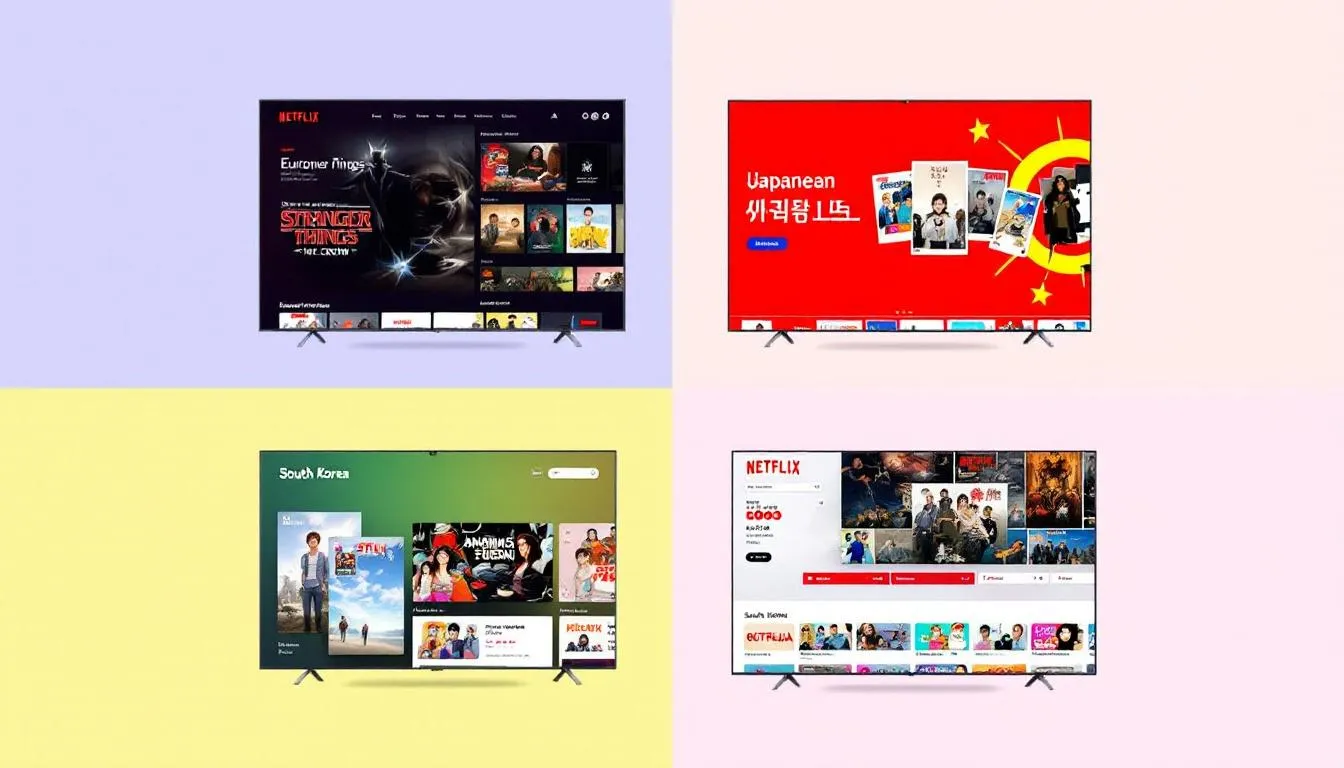
Privacy and Security Advantages
Beyond accessing restricted content, VPNs provide crucial privacy protections that many streamers overlook.
Since 2017, internet service providers in the US can legally sell your browsing history to advertisers and data brokers. This includes detailed records of what you watch, when you stream, and your viewing preferences across all streaming platforms. ISPs and third parties can also track your other online activities, but a VPN helps keep these private.
Key privacy benefits include:
• Hiding streaming habits from data brokers and targeted advertising networks • Preventing targeted ads based on your viewing preferences and watch history • Protecting against government surveillance in countries with authoritarian internet policies • Maintaining anonymity when streaming controversial or sensitive content that might be monitored
VPN users also benefit from protection against advanced tracking techniques like browser fingerprinting and DNS monitoring that streaming services use to build detailed user profiles for advertising purposes.
Streaming Services and VPNs
Many streaming services, such as Netflix, Amazon Prime Video, and BBC iPlayer, limit what you can watch based on your geographic location. This means that some of the best shows, movies, and live events might be unavailable in your country. By connecting to a VPN server in another region, you can access geo restricted content and unlock a wider range of streaming options on platforms like YouTube TV, Android TV, and Apple TV.
Using a VPN for streaming allows users to safely stream content on multiple devices, including smart TVs, mobile devices, and popular streaming devices like Fire TV and Roku. With unlimited simultaneous connections, everyone in your household can enjoy their favorite shows without interruption. A good VPN also helps you bypass bandwidth throttling imposed by internet service providers, ensuring a more stable connection and consistently fast speeds—even during peak streaming hours.
However, not all VPNs are equally effective. Some may struggle to work with certain streaming services or fail to provide the fast speeds needed for HD or 4K streaming. That’s why it’s crucial to choose a VPN that is compatible with the streaming platforms you use most, offers advanced security features, and maintains a strong track record of unblocking geo restricted content. Look for VPN services that support a wide range of streaming devices and provide features like DNS leak protection to keep your online activity private.
With the right VPN, you can enjoy seamless access to many streaming services, bypass regional blocks, and keep your online activity private—all while streaming your favorite content on any device, anywhere in the world.
Potential Drawbacks to Consider
While VPNs offer significant advantages for streaming, several limitations require consideration before making your decision. Not all VPNs are created equal—many lack the speed, reliability, or unblocking capabilities needed for smooth streaming, so it’s important to choose carefully.
Streaming Service Restrictions
Many streaming services actively work to detect and block vpn connections to comply with licensing agreements and geographic content restrictions.
Common blocking tactics include:
• Netflix actively blocks thousands of known vpn server IP addresses daily • Account suspension possible but rare in practice, with most services preferring to block access rather than ban users • Error messages appear when streaming platforms detect VPN usage, requiring server switching • Inconsistent access means you may need to try multiple vpn servers before finding one that works
Popular streaming services that actively block VPNs include Netflix, Hulu, Amazon Prime Video, and BBC iPlayer. However, premium vpn services continuously update their server networks to stay ahead of these blocking efforts. If you want to access geo-blocked content on a streaming device, you may need to install the VPN directly on the device or use a VPN-compatible router, as some streaming devices do not support VPN apps natively.
Speed and Performance Impact
VPN connections inherently add overhead that can impact streaming quality, particularly on slower internet connections.
Typical performance impacts include:
• 20-50% speed reduction depending on server distance and vpn protocol used • Potential buffering on connections under 50 Mbps when streaming 4K content • Increased latency when connecting to distant server locations • Free VPNs often too slow for HD or 4K streaming due to server overcrowding
However, premium vpn services like ExpressVPN minimize speed loss through optimized servers and advanced protocols. The best VPNs for streaming are those that maintain high internet speeds and offer faster speeds through servers specifically designed for streaming, with some providers even marketing themselves as the fastest VPN for streaming. Users with fiber internet connections often notice minimal impact on streaming quality.
The key is choosing vpn servers geographically close to your location while still achieving your geo-unblocking goals.
Overcoming Streaming Challenges
Streaming your favorite shows and movies should be simple, but real-world obstacles often get in the way. Many streaming services, including Netflix, Amazon Prime Video, and BBC iPlayer, restrict access to certain content based on your geographic location. This means that what you can watch on one streaming platform in the US might be completely different from what’s available in the UK or Japan. A virtual private network (VPN) solves this by allowing you to connect to a vpn server in another country, instantly changing your IP address and letting you access streaming content from around the globe.
Another common frustration is bandwidth throttling by internet service providers. When ISPs detect high levels of internet traffic from streaming platforms, they may intentionally slow down your connection, leading to buffering and reduced streaming quality. Using a VPN for streaming encrypts your internet traffic, making it much harder for your ISP to identify and throttle your streaming activity. This results in a more stable connection and consistently fast speeds, even during peak hours.
Restricted networks are another hurdle for streaming fans. Schools, workplaces, and even some public Wi-Fi networks often block access to streaming services to conserve bandwidth or enforce usage policies. By routing your internet traffic through a secure vpn server, a VPN can help you bypass these restrictions, so you can stream content on platforms like YouTube TV, Prime Video, and more—even on networks that would otherwise block access.
Security is also a top concern, especially when streaming on public Wi-Fi. Hackers can exploit unsecured networks to intercept your browsing history and online activity. A good VPN offers advanced security features such as DNS leak protection and a kill switch, ensuring your connection remains private and your data stays safe, no matter where you’re streaming from.
When choosing a VPN for streaming, look for services with a wide range of server locations, fast download speeds, and compatibility with popular streaming devices like Apple TV, Android TV, and Fire TV. Features like unlimited simultaneous connections are especially useful for households with multiple devices, allowing everyone to stream without interruption. Leading VPN services such as Proton VPN and Private Internet Access are known for their fast speeds, robust security, and ability to access geo restricted content on many streaming services.
With the right VPN, you can easily overcome streaming challenges—whether you want to watch live events, access exclusive Netflix libraries, or simply enjoy a more stable connection on your favorite streaming platforms. By keeping your online activity private and ensuring fast, reliable access to streaming content, a VPN is an essential tool for anyone who wants the best possible streaming experience.
To get started, simply connect to your VPN, select a server in your desired region, and then start streaming your favorite content securely and without restrictions.
Best VPNs for Streaming in 2025
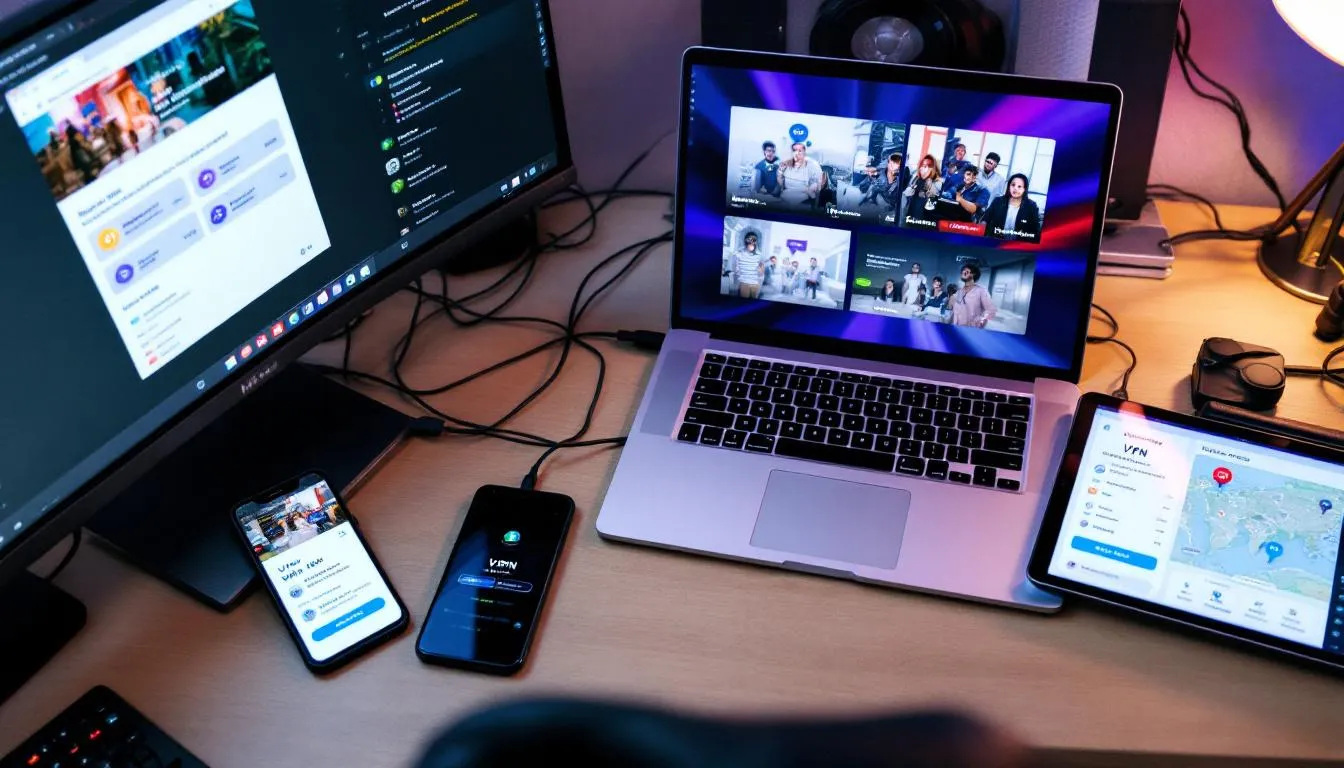
Not all vpn services excel at streaming. Here are the top performers based on speed, reliability, and ability to bypass streaming restrictions. These VPNs are also ideal for users who want to stream sports and access live sporting events that may be region-locked.
Top Picks Comparison
| VPN Service | Best For | Key Features | Monthly Price |
|---|---|---|---|
| ExpressVPN | Overall performance | Reliably unblocks Netflix and Disney+, fastest speeds | $12.95 |
| NordVPN | Speed optimization | Minimal buffering, Apple TV app available | $11.95 |
| Surfshark | Value and devices | Unlimited simultaneous connections, 4K streaming speeds | $12.95 |
| Proton VPN | Budget option | Free tier available, excellent for accessing netflix libraries | $9.99 |
All premium services offer 30-day money-back guarantees, allowing you to test streaming performance risk-free before committing to a subscription.
ExpressVPN consistently ranks as the best vpn for streaming due to its extensive server network (3000+ servers in 94 countries) and proven ability to bypass geographic restrictions on major streaming platforms. ExpressVPN uses military-grade AES-256 encryption, ensuring security for streaming activities. ExpressVPN is compatible with a wide range of operating systems, including Windows, macOS, Android, and iOS.
NordVPN offers specialized streaming servers optimized for popular platforms, with dedicated apps for streaming devices including Fire TV, Apple TV, and Android TV. NordVPN also supports all major operating systems such as Windows, macOS, Android, and iOS.
Surfshark provides exceptional value with unlimited device connections, making it ideal for households with multiple streaming devices and family members. Surfshark offers unlimited simultaneous connections, allowing users to protect all their devices at the same time.
Private Internet Access and Proton VPN offer budget-friendly options while maintaining strong streaming capabilities, though with smaller server networks than premium competitors.
Legal Considerations
Understanding the legal landscape helps you make informed decisions about vpn usage for streaming in your jurisdiction.
VPN usage remains legal in most Western countries:
• United States, UK, Canada: VPN use is completely legal with no restrictions • European Union countries: Generally permit VPN usage for privacy and security • Australia, New Zealand: Allow VPN use but streaming services may block access • Japan, South Korea: Legal to use VPNs for legitimate privacy purposes
However, some countries restrict or ban VPN usage:
• China and Russia: Heavily regulate vpn services, requiring government approval • Iran, North Korea: Prohibit unauthorized VPN usage with severe penalties • UAE, Turkey: Allow VPNs but restrict use for accessing blocked content
Important note: While using a VPN is legal in most regions, accessing geo-blocked content may violate streaming service terms of service. However, individual users rarely face legal consequences for personal streaming activities.
Always comply with local laws and streaming platform policies in your jurisdiction.
How to Choose the Right Streaming VPN
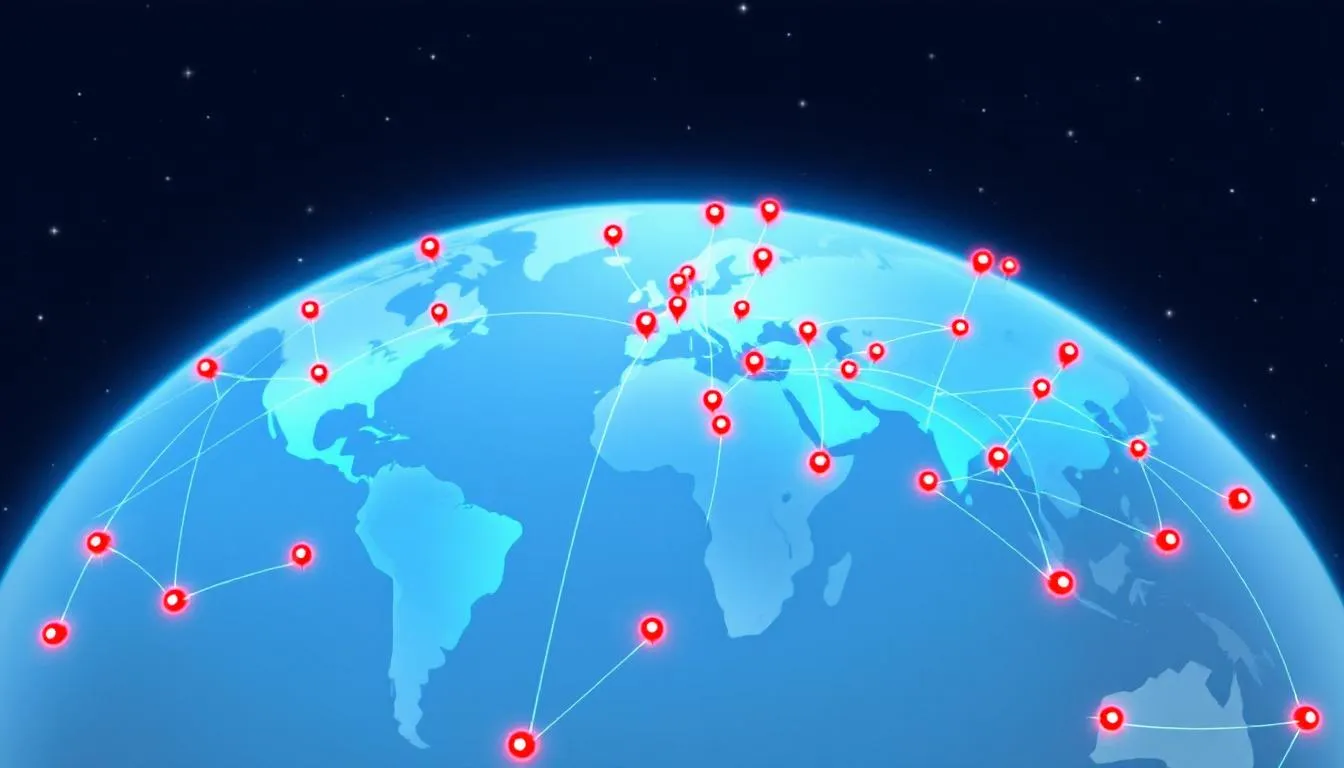
Selecting the best vpn for your streaming needs requires evaluating several critical factors beyond basic privacy features.
Essential Features
Server Network Coverage • Minimum 100+ server locations across major streaming regions (US, UK, Canada, Japan) • Dedicated streaming servers optimized for popular platforms • Regular IP address rotation to stay ahead of streaming service blocks
Streaming Platform Compatibility • Reliably unblocks Netflix, Disney+, Amazon Prime Video, and BBC iPlayer • Works with live streaming services like YouTube TV and sports platforms • Supports regional streaming sites specific to your content interests
Privacy and Security Standards • No-logs policy verified by independent audits • Strong AES-256 encryption to protect your internet traffic • DNS leak protection to prevent accidental IP address exposure • Kill switch feature that blocks internet access if vpn connection drops
Device and Platform Support • Native vpn apps for streaming devices: Fire TV, Apple TV, Android TV, smart TV platforms • Router-level vpn setup for devices that don’t support vpn apps natively • Multiple simultaneous connections to protect all household devices
When evaluating VPNs, also check user reviews and testimonials on social media platforms to get real-world insights into streaming performance and customer satisfaction.
Performance Requirements
Speed and Bandwidth • Minimum 25 Mbps after vpn overhead for 4K streaming content • Less than 25% speed reduction on nearby vpn servers • Unlimited bandwidth for extended binge-watching sessions • Low latency for live sports and real-time streaming events
Reliability Features • 99.9% uptime guarantee to prevent streaming interruptions • Automatic server switching if your current connection fails • 24/7 customer support for troubleshooting access issues with streaming platforms • Money-back guarantee period for testing streaming performance
Advanced Streaming Features • Split tunneling to route only streaming traffic through vpn while keeping other internet activity on your regular connection • Obfuscated servers that disguise vpn traffic as regular internet activity • Dedicated IP addresses to reduce likelihood of streaming service detection • Smart DNS features for devices that can’t run full vpn apps
The best streaming vpn balances all these factors while staying within your budget and meeting your specific geographic access needs.
Conclusion
Should you use a vpn when streaming? For most users, the answer is yes. VPNs significantly enhance your streaming experience by unlocking global content libraries, protecting your privacy, and preventing bandwidth throttling that degrades video quality.
The benefits clearly outweigh the drawbacks for travelers, privacy-conscious users, and anyone frustrated with geographic content restrictions. While you may experience some speed reduction and occasional access issues, premium vpn services minimize these problems through optimized streaming servers and robust infrastructure.
Choose a reputable vpn service with proven streaming capabilities, extensive server networks, and strong privacy protections. Take advantage of money-back guarantees to test performance with your preferred streaming platforms before committing to a long-term subscription.
Whether you’re accessing netflix libraries from different countries, securing your connection on public Wi-Fi, or bypassing network restrictions, a quality VPN has become an essential tool for modern streaming. The key is selecting a service that balances speed, security, and reliable access to your favorite streaming content.
Start with a premium vpn service that offers a free trial or money-back guarantee, test it with your most-used streaming platforms, and experience the difference that unrestricted, secure streaming can make.


